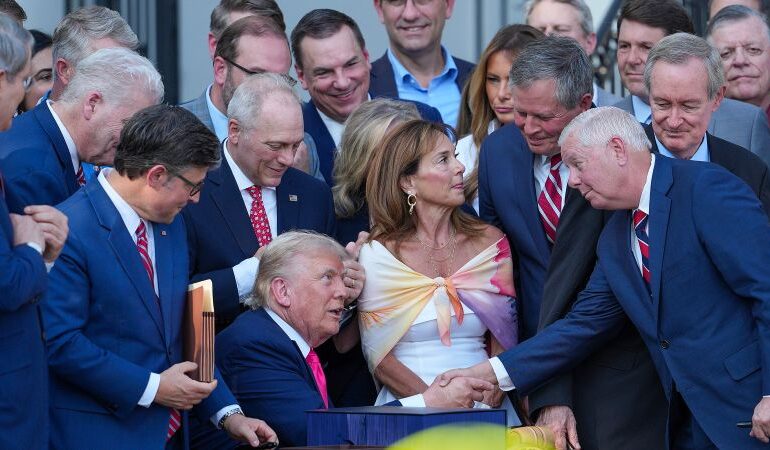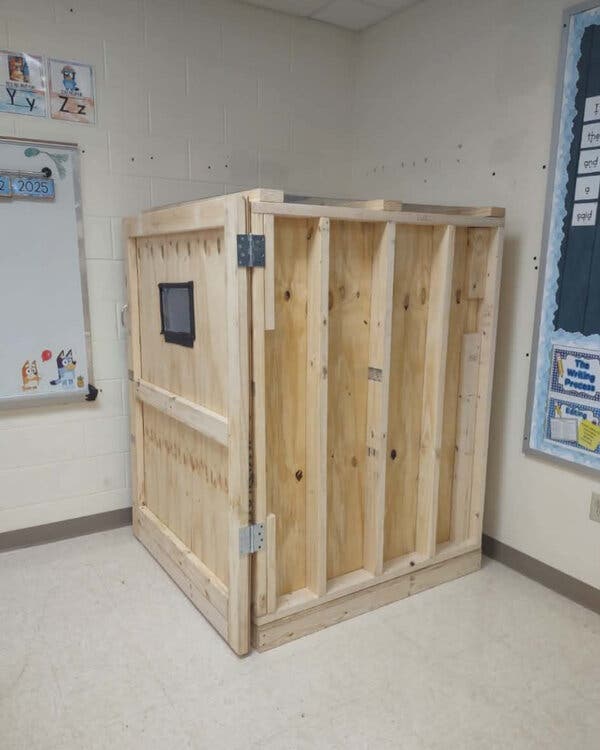Rural Clinics Close Following Trump’s Health Bill, Raising Concerns

Rural health clinics are closing in Virginia, attributed to the recent passage of President Donald Trump‘s health policy legislation, dubbed the “One Big Beautiful Bill.” Augusta Medical Group announced the closure of three clinics serving communities along the Blue Ridge Mountains, citing the bill’s implications for healthcare delivery. This legislation is projected to reduce federal health spending by hundreds of billions of dollars over the next decade, putting additional strain on rural health providers already dependent on Medicaid funding.
The closures have sparked political backlash, with Democrats linking the crisis to Trump and the Republican Party as they campaign for upcoming elections. Democratic gubernatorial nominee Abigail Spanberger campaigned in Buena Vista, a small town losing its clinic, emphasizing the need to secure support from rural voters before the fall elections. Candidates for governor across several states, including Georgia and New Mexico, have voiced concerns about the future of rural healthcare amid impending funding cuts.
Marshall Cohen, a veteran Democratic strategist, described the situation as indicative of broader challenges. He noted, “Rural hospitals are closing, at the end of the day. We’re seeing the tip of the iceberg here in Virginia, and it’s a sign of what’s to come.” In contrast, Ken Nunnenkamp, executive director of the Virginia GOP, defended the clinic closures, stating that consolidating services could ultimately benefit rural communities by improving access to healthcare.
Impact of the Legislation on Rural Health
The “One Big Beautiful Bill” is projected to cut Medicaid spending by over $900 billion in the next decade, according to the nonpartisan Congressional Budget Office (CBO). This reduction could lead to approximately 7.5 million additional uninsured individuals by 2034, significantly affecting rural populations. The new work requirements for low-income adult enrollees are expected to hit rural communities particularly hard, as employment opportunities are often limited in these areas.
Tim Layton, an associate professor at the University of Virginia, emphasized the potential fallout, stating, “You can expect those places to be impacted by now having people who don’t even have Medicaid. With fewer people to spread fixed costs across, it becomes harder and harder to stay open.” The reliance on Medicaid by rural health care providers underscores their vulnerability, especially as they face dwindling patient numbers and long-term population losses.
Research from the University of North Carolina highlights the precarious situation, identifying 338 rural health facilities at risk due to the policy changes, with six located in Virginia alone. Local residents, such as Candice Crow, a mother of four children with autism, have expressed deep concerns about the closures. Crow relies on the Bon Secours – Southampton Medical Center in Franklin, Virginia, which is on the endangered list. “Every minute counts when it comes to emergencies. This could cost someone their life,” she warned.
Responses and Future Considerations
In response to the expected impact of the cuts, Republicans in Washington established a $50 billion fund aimed at supporting rural health providers. This initiative invites all states to apply for funding tailored to their specific rural health challenges. “If we invest this money wisely, we won’t just have health care systems barely hanging on in rural America,” stated Dr. Mehmet Oz, administrator of the Centers for Medicare and Medicaid Services.
Critics argue that this fund represents a temporary fix. Ken Nunnenkamp hailed it as “effectively the largest investment in rural hospitals in decades,” while US Representative Ben Cline, representing Virginia’s 6th District, defended his vote for the bill, stating that reforms will ensure quality health care for all Americans, especially in rural areas. However, analysts like Layton caution that the $50 billion allocation could be insufficient given the projected $137 billion decline in federal Medicaid spending in rural areas.
Additionally, Virginia’s Lieutenant Governor, Winsome Earle-Sears, proposed utilizing the state’s rainy day fund to offset potential budgetary shortfalls. Despite this, Spanberger criticized the notion that state resources could adequately address the impending crisis, labeling the federal changes as a “bad bill” that shifts costs onto states.
As political candidates on both sides of the aisle grapple with the implications of the legislation, discussions around how to fill the gaps in rural health care are intensifying. Pete Barlow, a Democratic challenger to Cline, articulated the frustration felt in rural communities, asserting that the administration’s policies have severely impacted local health services, creating a ripple effect for years to come.
The ongoing conversations indicate a growing recognition of the importance of rural health care, with Democratic strategists like Lynlee Thorne emphasizing the need to engage with voters about the real-world consequences of policy changes. As the political landscape evolves, the future of rural health services remains uncertain, with many communities anxiously awaiting further developments.






